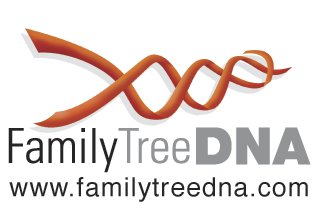McCorkle Surname Y-DNA Project

Menu
Privacy FAQs
Introduction
It's wise to inquire further when your participation requires that you provide a sample of your DNA. In an effort to help you make an informed decision, I've copied the following information originally found on the FamilyTreeDNA website. It is reprinted here for your convenience.

Testing my DNA?!? Are you nuts?!?!
A while ago a customer sent us a copy of the reply she received from someone that she was trying to bring into her family project. It had so many misconceptions that we thought: we need to publicize this and respond one by one to that person's claims.
Our remarks are inserted in italics.
A little while ago, I was challenged to explain my reservations regarding this DNA testing.
First: Once you send off that sample, you have lost control of it. It becomes the property of FamilyTreeDNA. It will be stored at the University of Arizona. You will have no control over the sample, what it is tested for, who will have access to the test results or how the results will be used beyond attempting to match you with distant kin.
WRONG! When you deposit your money in the bank, do you lose control over it? When you rent storage space, do you lose control over what you store? When you buy a Certificate of Deposit, do you lose control over that money? The answer is no, right? The money is yours, the stored material is yours and so is the DNA. Not ours, not the University's, but yours. You have the right to ask for it to be destroyed, to be sent back to you or to another lab. Whatever you wish. It's yours. The University of Arizona stores it in a temperature controlled and limited access environment, and it has the authorization to use it only for the purposes of the test(s) that you have ordered. Nothing else. Not even anonymous research. The lab at the University of Arizona is an accredited lab with the Department of Justice, and they wouldn't mess with your DNA. Actually, having the DNA at the UofA is safer than having money at the bank, since the FDIC has a limit on how much of your money is protected in case that the bank goes belly up.
What if you, your children or your grandchildren are suddenly being asked to pay higher rates for health insurance because an insurance company has found that your DNA has the genetic marker for Alzheimers disease, breast cancer or some other catastrophic disease. The website may give you all the assurances in the world that your privacy will be protected, but you have no guarantee that this will be respected in the future.
WRONG! Do you have life insurance? Do you remember that when you bought life insurance (with a serious company) they came, took your pressure and a sample of your blood, and made you answer a long questionnaire? They don't need our DNA to obtain your information. They already have it if they want. Do you have health insurance? Do you remember that when you signed your health insurance you agreed to make available your medical records to your provider? Again, they don't need our DNA to obtain your information.
Second: What if the testing shows that you are not related to the people you think you are related to? You may not care that your grandfather is not really your grandfather. You may even find it amusing, but your straight laced maiden aunt may find it a source of humiliation. You need to be mindful of her feelings. In past years adoption was not treated as openly as it is today. Someone may discover that he/she is not a member of the family by birth. Do you have the right to force family secrets into the open without permission from the people involved. As the result of being matched with a "cousin", you may suddenly discover you have a mixed racial heritage. It may not bother you, but how will other members of your family or your community react to this news.
RIGHT! If you are not into genealogy, this test is not for you. If you are concerned that a remote possibility of a non-paternity event 3, 4, 8 or 20 generations ago will impact the way you are and will have a profound psycological effect on you or on yours, this test is not for you. If you are concerned that your racial ancestry is not as "pure" as you thought or wanted it to be, you're right, this test is not for you.
I guess what I really come down to is the fact that you are not the only person who may be affected by submitting a sample for DNA testing. You have to think very long and carefully about who else may be affected and how they will react. If at the end, you can honestly say that you believe the benefits outweigh the dangers - go ahead. I certainly will not be joining you.
RIGHT! That's the beauty of our society! At the end, you have the right to decide whether you should test or not. And when you weigh your motives, whether you test or not, the simple decision process that you mentioned above, will certainly help you better know the kind of person that you are.